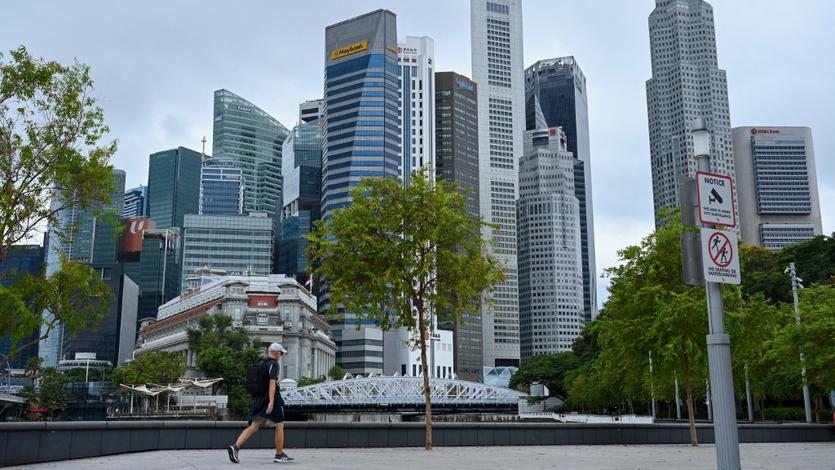 A man walks through a park next to financial business district in Singapore on April 7, 2022. (PHOTO / AFP)
A man walks through a park next to financial business district in Singapore on April 7, 2022. (PHOTO / AFP)
SINGAPORE - Singapore's economy grew slightly less than initially estimated in the fourth quarter from a year ago, official data showed on Monday, and the government kept its forecast for annual growth to come in at 0.5 percent - 2.5 percent this year.
Gross domestic product grew 2.1 percent year-on-year in the fourth quarter, the Ministry of Trade and Industry said, slightly lower than the 2.2 percent growth in the government's advance estimate due to slightly weaker construction and service sector growth.
Analysts had expected a 2.3 percent increase, according to a Reuters poll.
"Singapore's external demand outlook for 2023 has improved slightly. In particular, growth in China is projected to pick up in tandem with the faster-than-expected easing of its COVID-19 restrictions," said Gabriel Lim, permanent secretary for trade and industry.
"Growth outlook of the US and Eurozone economies remains weak amidst tighter financial conditions, which will weigh on consumption and investment spending in these economies," he added.
For the full year, GDP grew 3.6 percent versus an initial 3.8 percent estimate.
Analysts said that some services industries will fare better this year amid China's reopening, while manufacturing, especially electronics, is likely to weigh on growth in the short-term.
READ MORE: Singapore relaxes COVID travel curbs, mask rules further
Inflation
Singapore has seen some slight signs of price pressures easing in recent months but inflation still remained elevated at about 5 percent.
One of the important sources of inflation that we will be monitoring and analyzing quite carefully through this year is related to the labor market conditions both overseas in our key export markets, as well as domestically.
Edward Robinson, deputy managing director at the Monetary Authority of Singapore
The current central bank monetary policy stance remains appropriate, said Edward Robinson, Deputy Managing Director at the Monetary Authority of Singapore said. The next policy meeting is expected in April.
"One of the important sources of inflation that we will be monitoring and analyzing quite carefully through this year is related to the labor market conditions both overseas in our key export markets, as well as domestically," Robinson said.
He also noted that on a quarter-on-quarter basis headline and core inflation have shown slight declining momentum, in line with expectations.
"Inflation is likely to subside gradually in 2H23, but likely in fits and starts amid the volatile commodity prices, including food and energy," said Selena Ling, head of treasury research and strategy at OCBC.
"Looks like the window remains open for a tightening if core inflation remains very sticky on the downside," she added.
Meanwhile, the country's sales tax was raised to 8 percent from 7 percent on Jan 1 as the government seeks more revenue to fund increasing healthcare spending for its aging population. The sales tax will be further raised to 9 percent from 2024.
ALSO READ: Singapore expects full tourism recovery by 2024
Since April last year, Singapore had lifted most of its COVID-19 restrictions with many international events returning to the city-state, attracting tourists and businesses. The remaining restrictions will be relaxed from Monday.
The Asian financial hub is expecting tourism to recover to pre-pandemic levels by 2024.


